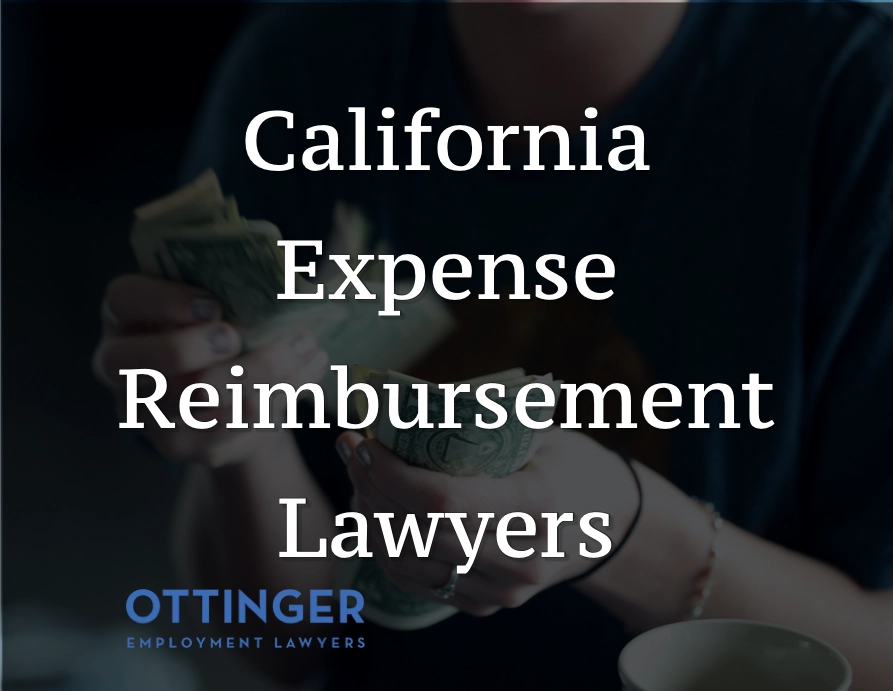Does My Employer Have to Reimburse Me for Business Expenses?

Yes. Expense reimbursement is required by law. Your employer must reimburse you for “all necessary expenditures or losses” incurred by you “indirect consequence of the discharge of [your] duties” or “in obedience to [your employer’s] directions.” California Labor Code §2802.
This means if the out of pocket cost was required for you to complete your job duties, or your boss directed you to spend your own money to accomplish a task for your employer, your employer must pay you back.
What Costs Are Subject to Expense Reimbursement?
“Necessary expenditures or losses” include all reasonable costs. The question of whether or not an expense is “necessary” and thus “reasonable” can depend on the employee’s choices.
Generally, when incurred in a reasonable manner, such expenses as office supplies, equipment, uniforms, internet access, and costs incurred by the employee in using his or her own vehicle should all be reimbursed.
If your employer requires you to use your personal mobile phone for business-related purposes, they must pay a reasonable percentage of the costs you incur for use of your phone. Cochran v. Schwan Home Service, Inc., 228 Cal.App.4th 1137 (2014).
The same goes for any other type of personal device such as a printer, laptop or tablet, or other tools needed to perform your duties.
In addition, your employer is required to reimburse you for costs incurred while attending conferences or training that they require you to attend.
There are some exceptions to the expense reimbursement rule.
First, employees in the construction industry whose wages are at least twice the minimum wage are not required to be reimbursed for purchase and maintenance of hand tools and equipment that is customarily required by their trade or craft.
Third, public entity employers are not required to pay the costs of purchasing, replacing, cleaning, and maintaining employee uniforms.
In re Work Uniform Cases, 133 Cal.App.4th 328, 345 (2005). This is generally because the governing bodies of public entities like counties and cities are themselves charged by the California state constitution with plenary authority to provide in their charters for the compensation of their employees.
This implicitly limits the power of the state legislature to mandate any law that might be inconsistent.
In addition, many counties have implemented specific uniform allowances and/or entered in negotiated collective bargaining agreements with their employees covering uniform allowances.
Does My Employer Have to Reimburse Me at the IRS Rate When I Use My Vehicle for Work?
No. Employers may use the IRS rate per mile (58 cents per mile in 2019) for personal vehicle expense reimbursement, or they may instead elect to reimburse your actual expenses or pay a lump sum amount to cover your costs. Gattuso v. Harte-Hanks Shoppers, Inc., 42 Cal.4th 554 (2007).
To calculate the expense reimbursement amount using actual costs requires keeping detailed and accurate records of such costs as fuel, maintenance, repairs, insurance, registration, and depreciation.
In addition, you would need to keep track of miles driven for personal and business use in order to appropriately apportion the actual expenses.
Using the lump sum method, the employer pays a fixed amount for automobile expense reimbursement. The fixed amount could be via a per diem, car allowance, or gas stipend.
Regardless of which of these methods is used, it must result in full reimbursement for actual expenses necessarily incurred by you as an employee.
Thus, if your employer is using either a lump sum or per-mile reimbursement rate, but you don’t believe it is sufficient to fully reimburse your actual expenses, you may challenge your employer’s methods in court.
It is also permissible for your employer to satisfy its business expense reimbursement requirements by paying enhanced compensation in the form of increased base salary or commission rates provided you can identify the portion of overall compensation that is intended as expense reimbursement.
Again, however, the amounts so identified must be sufficient to truly reimburse you for all the expenses you have actually and necessarily incurred.
What if I Have an Employment Agreement That Says I Will Not Be Reimbursed for Business Expenses?
Under California Labor Code §2804, employees cannot waive the requirement that employers reimburse them for business expenses.
If your agreement includes a clause like this, courts will not enforce it.
What Should I Do if My Employer Has Refused to Reimburse Me for Business Expenses?
Contact Ottinger Employment Lawyers and speak with one of our California employment attorneys.
Not only are you entitled to recover business expenses, but you are also entitled to receive interest on the amounts you spent to discharge your employment duties.
Interest accrues from the date you incurred the expense. You are also entitled to recovery of attorney’s fees, and, in some cases, courts may require employers to pay penalties.
